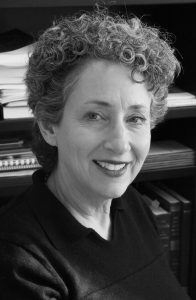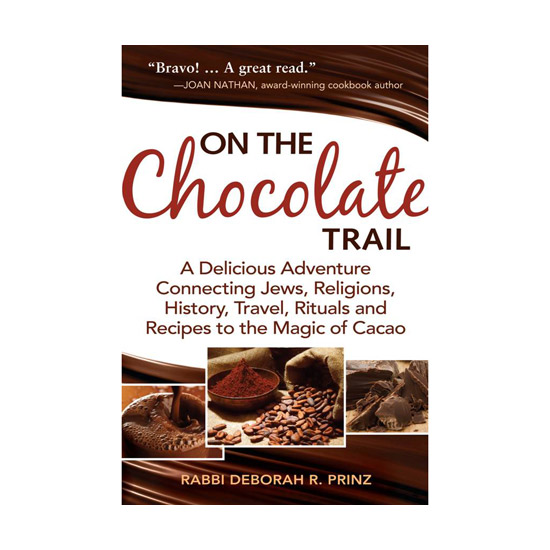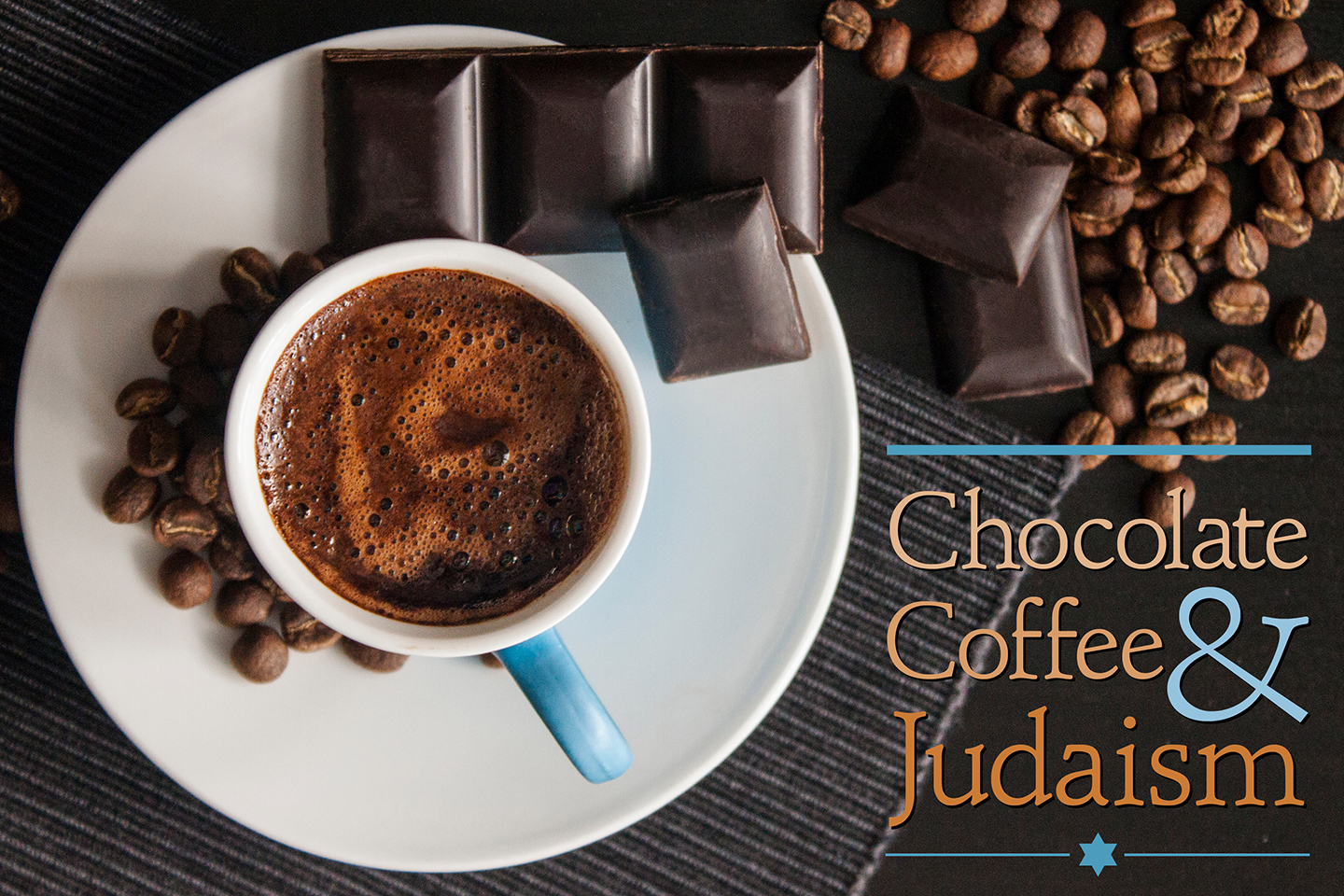Tidbits from the Chocolate Trail
By Vivian Henoch, Editor myJewishDetroit
February 1, 2017
We’re talking serious cocoa here: chocolate for chocolate lovers, chocolate for chocoholics, Jewish chocolate. Think chocolate rugelach, chocolate babka, chocolate phosphates, flourless chocolate recipes, boxes of Barton’s chocolates, Tootsie Rolls (who knew they were Jewish?), Elite chocolates from Israel.
When it comes to exploring, explaining and sharing the history, the culture, the rituals and the recipes of all things chocolate, no one does it better than Rabbi Deborah Prinz.
“I eat chocolate every day. I eat it religiously.” – Rabbi Deborah Prinz

Rabbi Prinz – author, blogger, mentor, guest lecturer – has held a number of leadership positions in the national and regional Reform movement, recently having served the Central Conference of American Rabbis (CCAR) as Director of Program and Member Services. A Senior Fellow at the Hebrew Union College and Rabbi Emerita of Temple Adat Shalom, Podway, CA, Rabbi Prinz has traveled the world to research her book, On the Chocolate Trail: A Delicious Adventure Connecting Jews, Religions, History, Travel, Rituals and Recipes to the Magic of Cacao, published in 2013 and now in its third printing.
At the Detroit Institute of Arts on Sunday, February 26, 2017, Rabbi Prinz will join Professor Howard Lupovitch, Director of the Cohn-Haddow Center for Judaic Studies at Wayne State University and Dr. Yao-Fen You, Associate Curator at the DIA, for a delectable afternoon of Chocolate, Coffee & Judaism.
Sponsored by the Jewish Federation in partnership with the DIA, the event is held in conjunction with the exhibition Bitter/Sweet, Coffee, Tea and Chocolate. Guests will enjoy a delicious history and stimulating conversation accompanied by a kosher chocolate buffet and an after-hour tour of the exhibit.
To pursue her research, Rabbi Prinz was awarded a Starkoff Fellowship and a Director’s Fellowship from the American Jewish Archives as well as a Gilder Lehrman Fellowship from the Rockefeller Library. Her project has stirred age-old and cross-cultural passions for chocolate and religion, gathering information from her travels in Belgium, Canada, England, France, Israel, Italy, Mexico, Spain, Switzerland and the United States.
More Tidbits on the Chocolate Trail: Q & A with Rabbi Prinz
myJewishDetroit: What is the chocolate trail?
Rabbi Prinz: On the Chocolate Trail – the title of my book published by Jewish Lights – actually refers to three trails where I have found myself in passionate pursuit:
- First, the routes that chocolate traveled in the appetites of Mayans and Aztecs and then of Europeans. Chocolate initially was valued in religious settings by Mayans and Aztecs and later dispersed through the world from Central America, partly by people of faith. These included Jews exiled from Spain. Catholic clerics also played a role. Chocolate came to be highly important to Quakers in England where they founded major British companies such as Cadbury, Rowntree and Fry’s.
- Second, the Chocolate Trail represents the route of my travel around the USA and in many countries, as well as through the research that I pursued in multiple libraries and archives.
- Finally, On the Chocolate Trail has come to mean my book tour. Since its publication, I have been on a personal chocolate trail, sharing the stories of Jews and chocolate with audiences in London, Calgary, Toronto, Tel Aviv, Jerusalem and all over the USA.

Please share how your chocolate obsession began. How did your journey begin?
I first learned about Jewish connections to chocolate in a shop in Paris. I said to myself, “Ooh, la, la! There’s a connection between Jews and chocolate?” And, that began the research for On the Chocolate Trail. My husband, Rabbi Mark Hurvitz, and I traveled to Belgium, Canada, England, France, Israel, Italy, Mexico, Spain, Switzerland and all over the United States.
Have you ever given a chocolate d’var torah?
Yes. I have enjoyed teaching the Torah of chocolate on a number of occasions. For instance, when I am asked to be a scholar-in-residence, I generally offer a text study. This discusses our responsa literature and specifically the questions of rabbis about chocolate.
One d’var torah has to do with the rabbinic debate about the nature of manna. There are several opinions about manna and what the ancient Hebrews were actually eating for forty years in the Sinai desert. In this rabbi’s opinion, it had to have been chocolate.
Have you found any Detroit connections to chocolate?
At this point, I am aware of Gayle’s and Sanders. I would love to hear from your readers about any religious connections to chocolate in the Detroit area.
Please share a sneak peek of one of your favorite Jewish chocolate stories.
I love the Jewish chocolate stories and there are so many. L’dor va dor, from generation to generation, Jews, initially Sephardim, have been trading, making and consuming chocolate. I have noticed themes of resilience, of creativity, of tzedakah and of synagogue leadership in those chocolate stories. In the 20th century, these themes manifest in the Klein family of Barton’s Bonbonniere as well as in the Swiss family-owned company, Camille Bloch. Earlier, Jewish Colonial chocolate leaders in North America such as the Gomez family in New York City and Aaron Lopez in Newport, Rhode Island, led their synagogues and contributed generously to their communities. It was in the account books of Aaron Lopez that I found the first connection of Pesach with chocolate. In April 1772, Lopez paid Joseph Pinto for grinding “6 lb Chocolate for Pesah.” That must have been the start of chocolate traditions for Pesach.
About the event: Chocolate, Coffee & Judaism, Sunday, February 26, 2017, from 3:30 to 7:30 pm, at the Detroit Institute of Art is co-sponsored by Friends of Melton, Friends of Cohn-Haddow, National Council of Jewish Women, Jewish Community Center and the DIA. Advanced registration is required by February 21. For tickets, visit online or call 248-205-2557.




